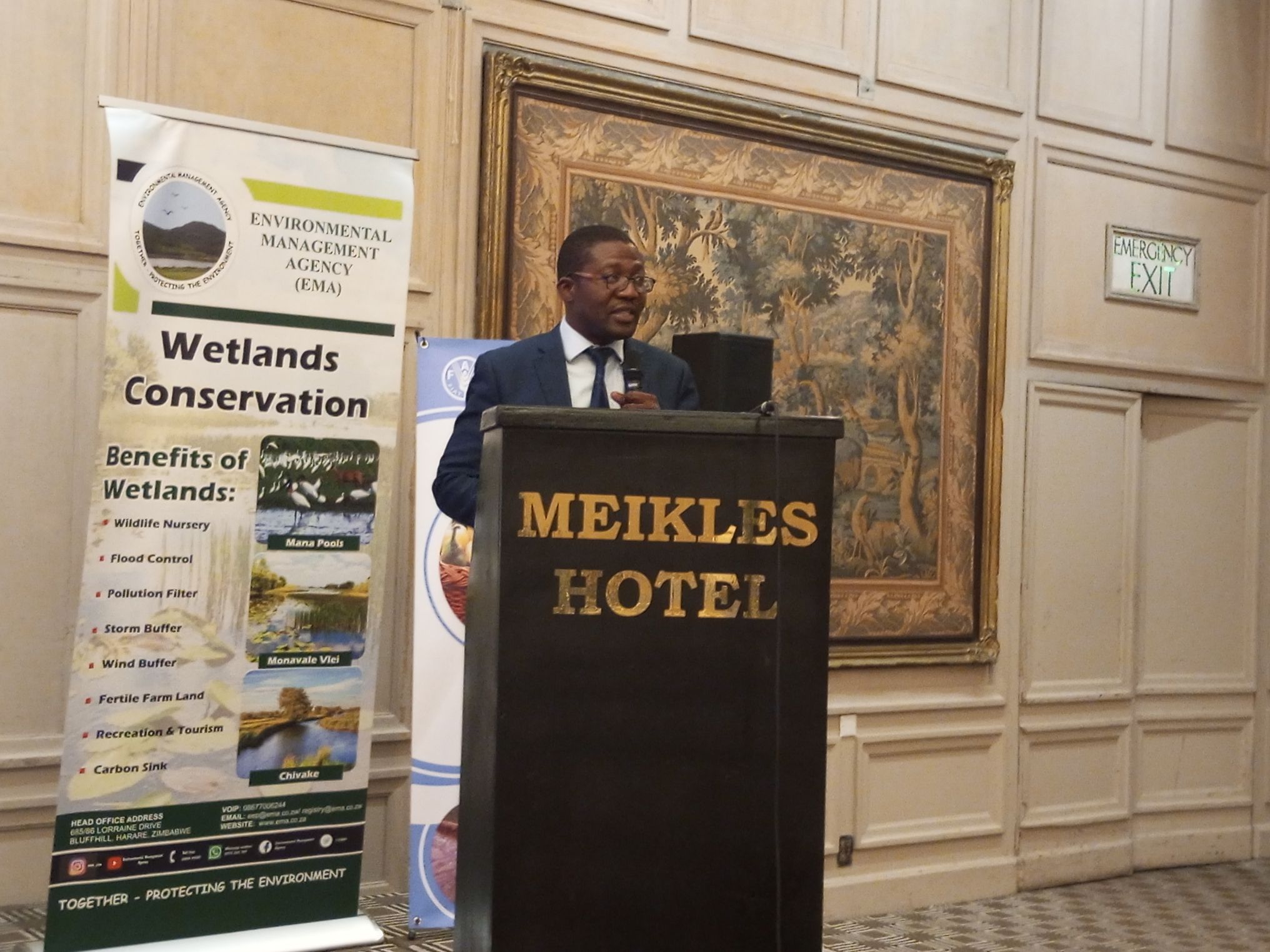|
Getting your Trinity Audio player ready…
|
Hon. Mangaliso Ndhlovu, the Minister of Environment, Climate, Tourism and Hospitality Industry has called on stakeholders to address the challenge of biodiversity that is presently being lost at unprecedented rates largely due to human-driven activities and the impact of climate change.
He made the call during a Stakeholder Consultation Workshop on the Convention on Biological Biodiversity (CBD) in Zimbabwe, ahead of the Fifteenth Conference of Parties Meeting (CoP15) to take place from 5 to 17 December 2022 in Montreal, Quebec, Canada.
“Ladies and Gentlemen, the benefits from the sustainable access to and use of biodiversity and its components can contribute significantly to the economy and thus to the attainment of Vision 2030.
“Unfortunately, biodiversity is presently being lost at unprecedented rates largely due to human-driven activities and the impact of climate change. In Zimbabwe, we celebrate Human population growth and related increase in per capita consumption, only if we take care of biodiversity. The key pressures driving biodiversity loss are over-exploitation of species; proliferation of invasive alien species; pollution and the challenges of wastes globally; climate change variability; loss of wetlands, veldt fires, and especially the degradation, fragmentation, and loss of habitats. We, therefore, need transformational approaches and more scientific research to build a strong case for biodiversity so as to address these root causes of biodiversity loss,” Hon Ndlovu said.
To that effect, the imperative to reduce the negative human impact on biodiversity is widely acknowledged. The United Nations Convention on Biological Diversity (CBD), which was agreed on at the 1992 UN Conference on Environment and Development in Rio de Janeiro is one of the most widely ratified treaties in the world advocating for the conservation of biodiversity, the sustainable use of its components, and the fair and equitable sharing of benefits arising from the use of genetic resources. Zimbabwe became a signatory to this convention in 1995.
Being a signatory to the convention, Zimbabwe is obliged to implement its provisions. The National Development Strategy 1 (NDS1) aims to leverage the country’s competitive advantages, particularly with regards to the configuration of our natural resource endowment.
Zimbabwe has a proud history of biodiversity and nature conservation. More than 30% of the country’s landmass is under some form of protection for nature conservation such as national parks, gazetted forests, and recreational parks.
The Environment Ministry through its parastatals, ZimParks, Forestry Commission, Allied Timbers, and EMA has over the years championed conservation projects and programs that support biodiversity conservation and aim to restore nature’s biological balance.
“We have also promulgated various policies and legal instruments including those on the Environment, Wetlands policy and Wetlands utilisation framework including gazetting all the country’s wetlands, our first ever Forest Policy, the Wildlife Policy, Community Based Natural Resources Management, Climate bill principles, carbon credit trading framework Policy among others. I must further buttress that we are determined to have all these policies and legal instruments approved by the cabinet in 2022. The work is right in our hands, as we make these preparations,” Hon Ndlovu added.
